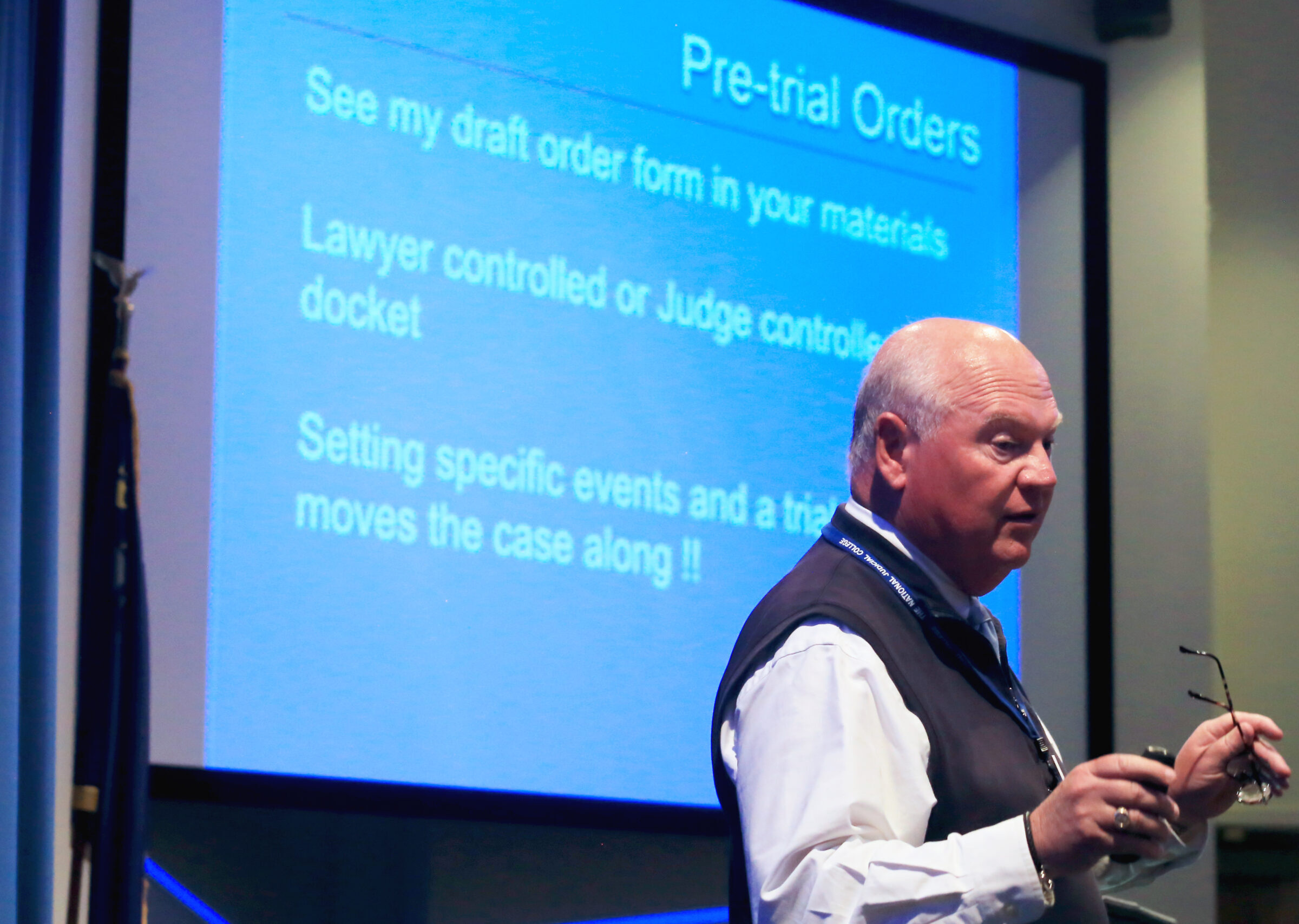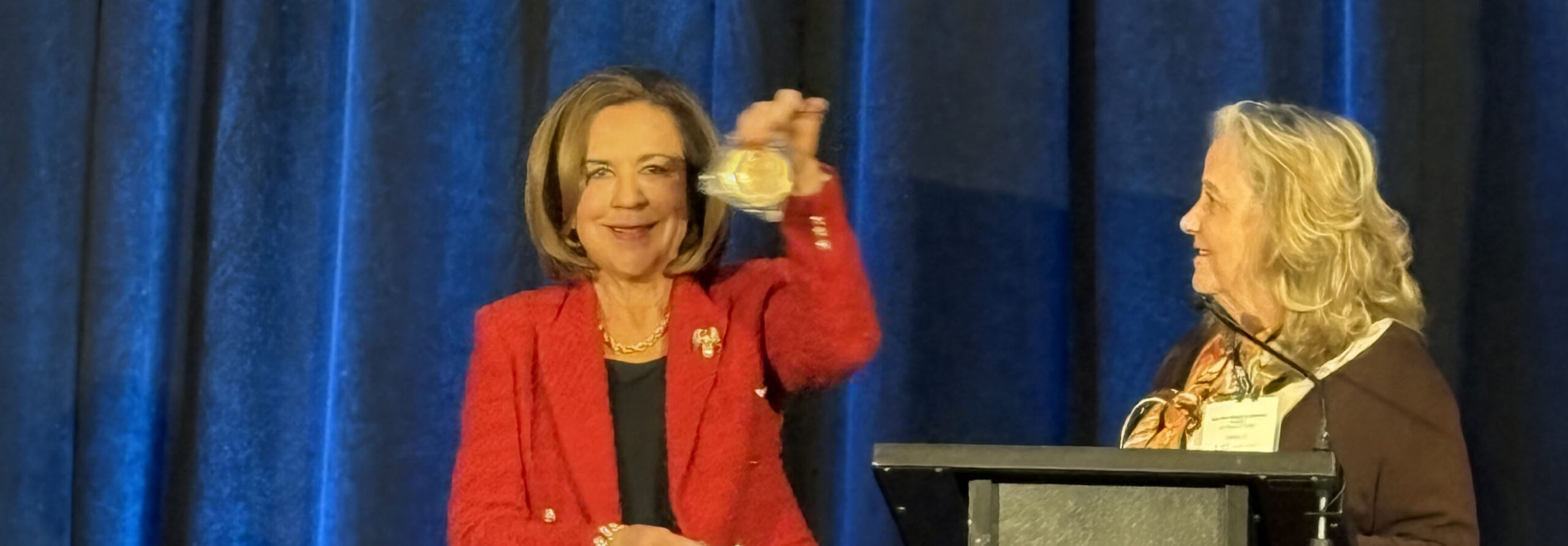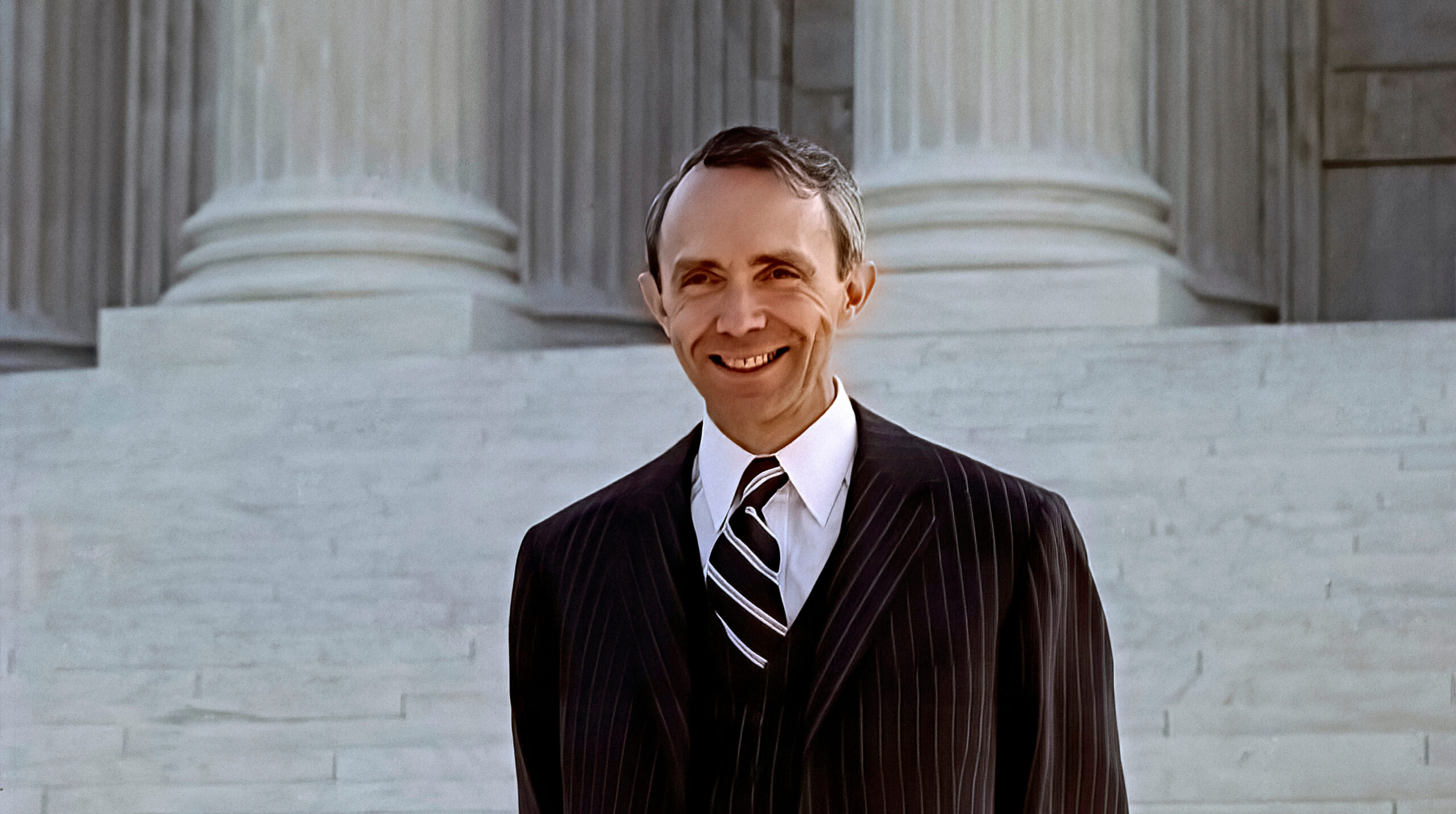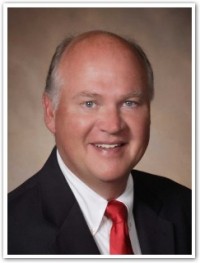
In 1994, I was elected to serve as a general jurisdiction judge for the 16th Judicial District of Tennessee. I was a 39-year-old lawyer who had done several jury trials, some divorces, and maintained a general law practice. For a few years prior I had been a part-time municipal judge.
My first judges’ meeting after my election took place shortly before I was sworn into my new position. The main topic was the distribution of cases. My three other colleagues had been on the bench for some time and were not really interested in training me on the ins and outs of serving on the bench. They each did their job well and wanted to stay on their individual paths.
Tennessee offered a four-day mini judicial academy, which I thought was wonderful, and I did make some lifetime friends there. But I wanted to learn more about my new profession and develop skills that would be beneficial throughout the rest of my career.
After several months on the bench, I discovered that Tennessee believed new judges should get further judicial education at The National Judicial College, located in Reno, Nevada. The NJC course for new judges was called General Jurisdiction and it lasted three weeks. I was told that the state would pay for my tuition and room and board plus other expenses.
Although I was concerned about being away from my work for three weeks, I carefully reviewed the curriculum and decided this would be a worthwhile endeavor. Some of the Tennessee judges I had met at the mini judicial academy were also headed out to the NJC.
Back in the spring of 1995, General Jurisdiction participants stayed at the University Inn, which was across the street from the University of Nevada, Reno campus. It was basically a nice dorm room with a private bathroom. Access to a washer and dryer was a plus since the course lasted three weeks. The cafeteria in the facility served a nice breakfast and dinner. It was a great way to meet other classmates and instructors. It was also fun to visit Lake Tahoe on the weekends. It seemed as though one of my classmates always had a rental car.
A great portion of my early judicial education at the NJC came from interacting with other judges in my small discussion group. I also learned so much from the wonderful judge instructors who volunteered their time to impact the work of new judges from across the country. Judges like Mike Keasler from Texas and Big Sam DeSimone were both fantastic teachers. I wondered if I could ever follow in their footsteps.
That first course motivated me to continue to be a judicial student, and I was thrilled to be asked back to participate as a discussion leader for General Jurisdiction.
During the summer session, the NJC offered a summer camp for children of judges. I brought each of my children for a one-week stay. They went to camp and I went to class. On the weekends we took side trips to Yosemite and San Francisco. My children still talk about summer at the NJC!
During one of the General Jurisdiction courses, I learned about a master’s degree in judicial studies that the NJC offered in conjunction with the University of Nevada, Reno. I knew two Tennessee judges who were working on obtaining the degree.
Part of the courses were offered by UNR and were like intersession courses I had taken in college. You could take them during the summer and over Christmas. Some NJC classes also counted toward the degree.
All of these courses had reading and testing requirements. The degree also had a thesis requirement, and it was suggested that the author might want to see if their law school would publish the article.
I realized that the most challenging part of obtaining the degree would be the writing of this thesis. So I decided to put my committee together immediately and start working on it. I knew it would take at least four years to complete the course work. It was a big commitment.
As a divorced dad who had handled some limited domestic relations cases in private practice, and later hearing divorces as a trial judge, I knew how families hurt when going through this process. My thesis, “Bridge Over Troubled Water: Changing the Custody Law in Tennessee,” 27 U. Mem L Rev 769 (1996-1977), ended up including a draft of legislation for divorce decrees mandating parenting plans and mediation.
Thanks to the work of many Tennessee judges and others, the proposal became the law in my state more than two decades ago. Thousands of Tennessee families now have parenting plans to help foster a positive family environment.
I did not anticipate this product would change the face of domestic relations in Tennessee. Without the support of The National Judicial College, its faculty, and many others, this legislation would probably have never happened. I will be forever grateful to the College for its master’s degree program.
After one serves as a group discussion leader for the NJC, the next step – if the College thinks you may have some teaching ability – is to attend a faculty development workshop. They have three of these you are required to attend, usually lasting about four days. The College picks up the tab for participants. I was thrilled when William Brunson, now director of special projects, custom courses and international programs, called and offered me the opportunity to learn how to teach judges.
To be honest, I thought teaching for the NJC was a long shot since the focus was rightfully on developing more diversity in the faculty. But I got an emergency call to go teach in a course on domestic relations in the fall of 2000. I was to travel to Concord, New Hampshire, and teach approximately 20 judges.
Sadly, the course administrator for the NJC ended up having a family member get ill and had to fly home. She told me I would have to oversee the class all by myself. Evidently it turned out well because I got high marks from the participants.
I was now in line to teach, and the college asked me which subjects I was interested in presenting to judges. I told them judicial ethics, trial management and domestic relations, and I got to teach judicial ethics in the next General Jurisdiction course.
Since I stayed on a few extra days to help out on another course, they let me pick my next assignment.
I picked Current Issues in the Law because the course was always held in places I wanted to go: Key West, Florida; Washington, D.C.; Charleston, South Carolina; Sun Valley, Idaho. I truly have traveled America teaching for The National Judicial College.
As of today, I have been teaching for the College for 22 years. Because other judges have met me at NJC courses, I have also been asked to come to their states and teach at various judicial state conferences: California, South Carolina, Ohio, West Virginia, Idaho, Alaska, North and South Dakota, Georgia, New York, Montana, Kansas, Mississippi, and so many other places. I have judicial friends in almost every part of the country.
Several years ago, the NJC asked me to join a few other teachers and develop a course for judges to help them when dealing with self-represented litigants. Kelly Tait, Bruce Moore, Susan Conyers, Karen Adams and others spent a week putting a course curriculum together. We have now taught this course to hundreds of judges over the past decade. Today it is one of the most popular courses at the College, and we go all over the country discussing this challenging issue.
The NJC has done even more for me.
My wife, Rita, and I also started a scholarship at the NJC with the assistance of the NJC Board of Trustees to help Tennessee judges with tuition. This legacy scholarship was set up to have a match of funds from the NJC if judges would contribute $12,500. This led other judges in different states to follow my lead.
I served as chair of the Faculty Council and had the opportunity to work with the College’s Board of Trustees for a year. I was so impressed to see the dedication of Board of Trustees and the Board of Visitors. I even got to attend a reception at the United States Supreme Court and meet the late Justice Anthony Scalia. Not too bad for the son of a widow from Lebanon, Tennessee.
My life has been greatly impacted by the staff and leadership of the NJC. People like Joy Lyngar, Mary Burdick, William Brunson, Joseph Sawyer plus our current president, Benes Aldana, and past presidents always made me feel appreciated. I always looked forward to coming to Reno and seeing my friends.
Although I plan to continue to serve my state as a senior judge, I recently notified the NJC that I was hanging up my teaching saddle bags. I hope that if they get in a pinch they will call and maybe an old dog can make a return visit. As I said, the NJC has done so much for me.
I hope others will contribute to the NJC (I know I will) and continue to be better judges because of the fantastic educational opportunities it offers.
Thanks for the ride, fellow judges, faculty and friends. It has been a blast!

The National Judicial College has awarded Missouri Supreme Court Judge Mary Russell with the Sandra Day O�...

Emeritus Trustee Bill Neukom (left) with former Board of Trustee Chair Edward Blumberg (right) at the NJC 60...

The National Judicial College, the nation’s premier institution for judicial education, announced today t...

The National Judicial College (NJC) is mourning the loss of one of its most prestigious alumni, retired Uni...

As threats to judicial independence intensify across the country, the National Judicial College (NJC) today...
